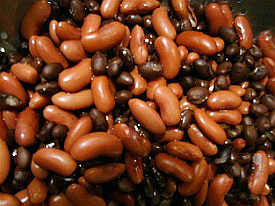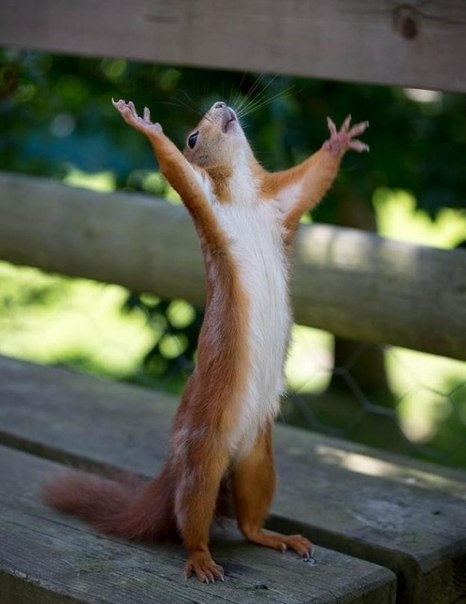Кожа
The human body is made up of many parts: bones, tissues, muscles, organs etc. Part of the organ family is the skin and it is the largest organ of the body. In Russian the word for skin is кожа.The word declines as such:
| Sg | Pl | |
| Nom | кожа | кожи |
| Acc | кожу | кожи |
| Gen | кожи | кож |
| Pre | коже | кожах |
| Dat | коже | кожам |
| Ins | кожей | кожами |
Here are a few sample sentences.
| У неё гладкая кожа. | She has smooth skin. |
| Он обжёг кожу на ноге. | He burned the skin on his foot. |
| Вы заботитесь о своей коже? | Do you take care of your skin? |
| Я узнала об уходе за кожей в интернете. | I learned about skin care from the internet . |
The skin protects us from diseases and germs that could get into our bloodstream. It has pores to help us to release heat in the summer and hair and layers to keep warm in the winter. There different tones of skins as well as different grades of how oily the skin is. Like any other part of the body it needs to be taken care of so it can look its best and do its job.

Шишка
The Russian word шишка can be translated into English 'bigwig', 'big shot', 'head honcho', so on and so forth. It can also mean 'cone,' but we'll be focusing more on the 'big shot' context today:
| Sg | Pl | |
| Nom | шишка | шишки |
| Acc | шишку | шишки |
| Gen | шишки | шишек |
| Pre | шишке | шишках |
| Dat | шишке | шишкам |
| Ins | шишкой | шишках |

Here are some example sentences:
| Шишка на подходе! Быстро! Спрячьте водку! | The bigwig is coming this way! Quick! Hide the vodka! |
|
— Кто это такой? — Это Гордон Гекко, он большая шишка. |
“Who the heck is that?” “That's Gordon Gekko. He's a big shot.” |
| В этом кашемировом костюме он похож на большую шишку! | He looks like a big shot in that cashmere suit! |
|
— Где шишки? — Они стоят на балконе, курят сигары. |
“Where are the bigwigs?” “They're out on the balcony smoking cigars.” |
Фасоль
The Russian word фасоль means 'bean,' as in the beans that are eaten by people. It declines as such:
| Sg | Pl | |
| Nom | фасoль | фасоли |
| Acc | фасоль | фасоли |
| Gen | фасoли | фасолей |
| Pre | фасоли | фасолях |
| Dat | фасоли | фасолям |
| Ins | фасолью | фасолями |
Interestingly enough, the word фасоль is really only used in reference to beans that Russians eat. Боб is another word for beans, but it usually refers to beans that Americans eat, which it can also mean farm animal feed. It's theorized that the use of боб instead of фасоль was the result of a translation snafu way back when. Most Russians prefer фасоль in general though for the smaller beans that you eat, such as, kidney, pinto, and black. When Фасоль is used in the plural it refers to different types of beans, not individual bean seeds. The word is used only in the singular to refer to beans that are used as food.

Here are a few sample sentences:
| Я ненавижу фасоль, она противная! | I hate beans, they're gross! |
| Фасоль полезная, она содержит много белка. | Beans are good for you. They contain a lot of protein. |
| Когда он ест фасоль, он часто пукает. | When he eats beans, he farts a lot. |
| Она съелa три тарелки фасоли! | She ate three platefuls of beans! |
Don comments: Thanks for the entry about beans, Natasha. I nearly decided to edit out your line about фасоль being used for the beans Russians eat and бобы more commonly for the beans that Americans and animals eat, but then I realized that I've heard the word фасоль used a lot in Russia, but I don't think I've ever discussed бобы there. So I've decided to leave the entry as it is, and hopefully some of our readers will chip in their two cents. I suppose I should note that technically there is a difference between фасоль and бобы. If you are in an anal-retentive mood, you can see a discussion of it here (mirror).
Белка
The Russian word белка means ‘squirrel’. It declines like so:
| Sg | Pl | |
| Nom | белка | белки |
| Acc | белку | белок |
| Gen | белки | белок |
| Pre | белке | белках |
| Dat | белке | белкам |
| Ins | белкой | белками |
Here are some sample sentences.
| Белка грызет семечки. | Squirrel chews sunflower seeds. |
| Моя собака поймала белку. |
My dog caught a squirrel. |
| Его любимое животное - это белка. | His favorite animal is a squirrel. |
| Она часто говорит о белках. | She often talks about squirrels. |
| Когда он вышел во двор, он был окружен белками. | When he came out to the yard, he was surrounded by squirrels. |
There are quite a few species of squirrels that live in Russia. There is even the Siberian flying squirrel, which is the only species of flying squirrel found in Europe. Ironically, Белка was also the name of one of the dogs that were launched into space on board of Sputnik 5 on August 19th, 1960. They were the first dogs in space. After circling the Earth in a space craft, they safely made it back down as national cosmonaut heroes of the former USSR. This year, a new cartoon was released about the two dogs, originally called “Belka and Strelka: Moon Adventures”. However, since not too many people outside of Russia are familiar with who they are, the title was changed to “Space Dogs”.
Достопримечательности
Sometimes when you study a foreign language, especially one as difficult as Russian, you just want to show off your new-found skills and knowledge, and for Russian one of the great words you can use for that purpose is достопримеча́тельности. It means ‘sights.’ That's right, sights. In English it’s one syllable. In Russian it’s eight syllables. Here is how it is pronounced:
When you are trying to learn to pronounce a polysyllabic monstrosity like that, there is a little trick that will help you get it right. If you would like to learn the trick, play this bit of audio:
In terms of declension достопримечательность is a standard third declension noun:
| Sg | Pl | |
| Nom | достопримеча́тельность | достопримеча́тельности |
| Acc | ||
| Gen | достопримеча́тельности | достопримеча́тельностей |
| Pre | достопримеча́тельностях | |
| Dat | достопримеча́тельностям | |
| Ins | достопримеча́тельностью | достопримеча́тельностями |
Although we usually translate it as ‘sights,’ you could also translate it as ‘attractions’ or ‘places of interest.’
| Какие есть достопримечательности в Казани? | What interestings sights are there in Kazan? |
| Самая интересная достопримечательность — мечеть Кул-Шариф. | The most interesting sight is the Qol Sharif mosque. |
| В Норильске вообще нет достопримечательностей. | Norilsk doesn't have any interesting sights. |
| — Какая самая интересная достопримечательность в Ванкувере? — Около университета есть нудистский пляж. — Разве это интересно? — Да, там есть на что посмотреть. |
“What’s the most interesting sight in Vancouver?” “There’s a nude beach near the university.” “You really think that’s interesting?” “Yeah, there’s stuff worth looking at there.” |
